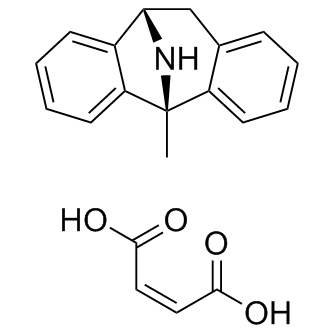In addition to inhibiting cell cycle progression, BEZ235 caused apoptosis in two of six cell lines. The inhibition of cell cycle Compound Library progression is a known effect of BEZ235, even at lower doses. However, apoptosis appears in only some cancer cell lines and is more apparent at higher doses of BEZ235. BEZ235 efficiently inhibited mTORC1, a molecule AB1010 controlling both cell cycle and apoptosis that might lead to cell cycle arrest and apoptosis in KAT4C and KAT18. Understanding the mechanisms through which BEZ235 contributes to apoptotic cell death will require further study. ATC is by far the most aggressive of the four major histologic types of thyroid cancer. Chemotherapy has been applied to treat patients with ATC with response rates around 20 to 50%. Novel strategies to improve outcomes are needed. Among three combination therapy regimens, BEZ235 combined with paclitaxel had the best synergistic effect in four ATC cell lines. Cancer cells with activation of PI3K/mTOR signaling are more resistant to paclitaxel, and the co-administration of PI3K/mTOR inhibitors with paclitaxel improves therapeutic effects. This finding is of clinical relevance since paclitaxel, a microtubule stabilizer, has shown to achieve a 53% response rate in patients with ATC in a phase II clinical trial. The combination of BEZ235 with a microtubule depolymerizing drug vincristine also revealed promising effect in the treatment of sarcoma. Our data showed that the combinational effects of BEZ235 with inhibitors of DNA topoisomerase type I or type II in treating ATC were largely antagonistic. Similar antagonistic effects of inhibition both topoisomerase activity and PI3K/AKT pathway have been observed in ovarian cancer cells. Cells in S phase are more susceptible to topoisomearse inhibitors.  BEZ235-induced accumulation of cells at G0/G1 phase may therefore reduce the therapeutic advantage of concurrent therapy with topoisomerase inhibitors, explaining the unfavorable combination effects of BEZ235 with irinotecan and etoposide. Daily treatment of BEZ235 significant retarded 8505C xenograft tumor growth during the therapeutic period. The inhibitory effect was less prominent after the discontinuation of therapy, suggesting that prolonged treatment may be necessary to maintain therapeutic efficacy. BEZ235 significantly degraded caspase-3 in 8505C xenograft tumors, indicating this compound may induce apoptosis in vivo. After discontinuation of BEZ235, the volume of 8505C xenograft tumors subsequently increased. This enlargement of tumor following cessation of therapy might be due to normalization of cell size and resumption of cell proliferation, as mTOR and its downstream proteins S6 Kinase 1 and 4E-BP1 play pivotal roles in this respect. No significant weight loss or illness was observed during study period, suggesting that this therapy may have a promising safety profile. A prior report demonstrated that the presence of genetic alterations of PTEN, PIK3CA and AKT1 correlated well with sensitivity to an AKT inhibitor, but had weaker correlations with an mTOR inhibitor. This discrepency suggests that mTOR activity does not depend solely on PI3K/AKT activity. The reported data of genetic alterations in 8 thyroid cancer cell lines was summarized. Limited genetic changes on RAS/RAF/ERK and PI3K/mTOR pathways were identified.
BEZ235-induced accumulation of cells at G0/G1 phase may therefore reduce the therapeutic advantage of concurrent therapy with topoisomerase inhibitors, explaining the unfavorable combination effects of BEZ235 with irinotecan and etoposide. Daily treatment of BEZ235 significant retarded 8505C xenograft tumor growth during the therapeutic period. The inhibitory effect was less prominent after the discontinuation of therapy, suggesting that prolonged treatment may be necessary to maintain therapeutic efficacy. BEZ235 significantly degraded caspase-3 in 8505C xenograft tumors, indicating this compound may induce apoptosis in vivo. After discontinuation of BEZ235, the volume of 8505C xenograft tumors subsequently increased. This enlargement of tumor following cessation of therapy might be due to normalization of cell size and resumption of cell proliferation, as mTOR and its downstream proteins S6 Kinase 1 and 4E-BP1 play pivotal roles in this respect. No significant weight loss or illness was observed during study period, suggesting that this therapy may have a promising safety profile. A prior report demonstrated that the presence of genetic alterations of PTEN, PIK3CA and AKT1 correlated well with sensitivity to an AKT inhibitor, but had weaker correlations with an mTOR inhibitor. This discrepency suggests that mTOR activity does not depend solely on PI3K/AKT activity. The reported data of genetic alterations in 8 thyroid cancer cell lines was summarized. Limited genetic changes on RAS/RAF/ERK and PI3K/mTOR pathways were identified.
The available data do not show any correlation between genetic aberrations of PI3K/mTOR pathways and sensitivity of BEZ235
Leave a reply